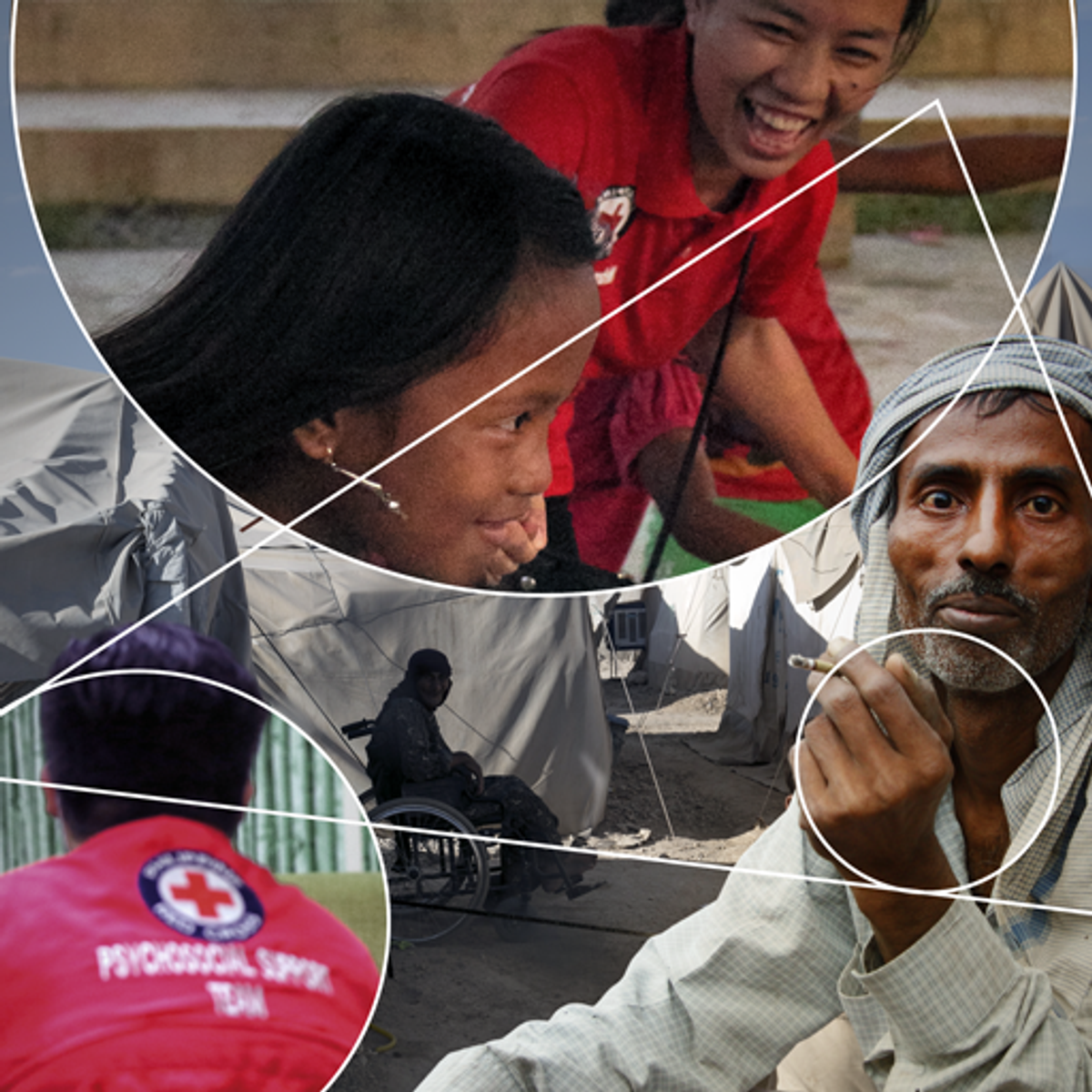
In humanitarian settings, mental ill-health is powerfully inter-connected with other non-communicable diseases (NCDs) such as cardiovascular diseases, cancers, diabetes and chronic respiratory diseases. Integrating mental health and psychosocial support (MHPSS) with NCD prevention and care might therefore be useful, both to be more effective, and to require fewer resources. There is, however, a lack of widely accepted guidelines that take this into account, and this course is intended to draw attention to that issue.
Read more
In humanitarian settings, mental ill-health is powerfully inter-connected with other non-communicable diseases (NCDs) such as cardiovascular diseases, cancers, diabetes and chronic respiratory diseases. Integrating mental health and psychosocial support (MHPSS) with NCD prevention and care might therefore be useful, both to be more effective, and to require fewer resources. There is, however, a lack of widely accepted guidelines that take this into account, and this course is intended to draw attention to that issue.
In humanitarian settings, mental ill-health is powerfully inter-connected with other non-communicable diseases (NCDs) such as cardiovascular diseases, cancers, diabetes and chronic respiratory diseases. Integrating mental health and psychosocial support (MHPSS) with NCD prevention and care might therefore be useful, both to be more effective, and to require fewer resources. There is, however, a lack of widely accepted guidelines that take this into account, and this course is intended to draw attention to that issue.
Attention to NCDs focused initially on four major disease categories (cardiovascular disease, diabetes, chronic respiratory disease and cancer) and four groups of associated risk factors (unhealthy diets, physical inactivity, tobacco use, and harmful use of alcohol). Recently, mental ill-health has been considered as the fifth NCD and environmental determinant as the fifth risk factor for NCDs – known as ‘5-by-5’ conditions.
The course has a threefold aim: i) to explore evidence of interaction between mental ill-health and other NCDs and the role of psychosocial support in humanitarian response; ii) to explore what is being done and where; what level the determinants of health are being addressed at and the integration of mental health and psychosocial support or MHPSS and NCD prevention and care in humanitarian response; and iii) to identify and explore challenges, opportunities and lessons learned for integrating MHPSS and NCD prevention and care in humanitarian response.
The MOOC will be led by a course leader from the University of Copenhagen in close collaboration with academic teachers, the Danish Red Cross and IFRC Reference Centre for Psychosocial Support, Copenhagen, Denmark.
What's inside
Syllabus
Overview of MHPSS and NCD Prevention and Care in Humanitarian Response
This module will provide you with an overview of MHPSS and NCD prevention and care in humanitarian response. We will start by discussing the World Health Organization (WHO) definition of health and the burden and risk factors associated with mental ill-health and other NCDs globally and in humanitarian settings. Then we will discuss the shift from the 4x4 approach (four major NCDs plus four modifiable risk factors) to the 5x5 approach (including mental ill-health and environmental risk factors). Consequently, we will explore factors that worsen mental ill-health in humanitarian responses as well as the role of psychosocial support in improving mental health and well-being. Finally, we will discuss the nature and role of agency in recovery from mental ill-health and other NCDs.
Read more
Syllabus
Good to know
Save this course
Activities
Practice Basic Psychosocial Support (PSS) techniques
Show steps
Reinforce your understanding of basic Psychosocial Support (PSS) techniques by practicing them in a simulated scenario.
Browse courses on
Psychosocial Support
Show steps
-
Review the World Health Organization's (WHO) guidelines on PSS
-
Set up a role-play scenario that simulates a humanitarian crisis
-
Practice providing PSS to individuals or groups affected by the crisis
-
Facilitate a debriefing session to reflect on the experience and identify areas for improvement
Show all one activities
Practice Basic Psychosocial Support (PSS) techniques
Show steps
Reinforce your understanding of basic Psychosocial Support (PSS) techniques by practicing them in a simulated scenario.
Browse courses on
Psychosocial Support
Show steps
- Review the World Health Organization's (WHO) guidelines on PSS
- Set up a role-play scenario that simulates a humanitarian crisis
- Practice providing PSS to individuals or groups affected by the crisis
- Facilitate a debriefing session to reflect on the experience and identify areas for improvement
Career center
Clinical Social Worker
Mental Health Counselor
Psychologist
Health Educator
Community Health Worker
Social Worker
Physical Therapist
Occupational Therapist
Nurse
Physician
Vocational Rehabilitation Counselor
Speech-Language Pathologist
Case Manager
Substance Abuse Counselor
Pharmacist
Reading list
Share
Similar courses
OpenCourser helps millions of learners each year. People visit us to learn workspace skills, ace their exams, and nurture their curiosity.
Our extensive catalog contains over 50,000 courses and twice as many books. Browse by search, by topic, or even by career interests. We'll match you to the right resources quickly.
Find this site helpful? Tell a friend about us.
We're supported by our community of learners. When you purchase or subscribe to courses and programs or purchase books, we may earn a commission from our partners.
Your purchases help us maintain our catalog and keep our servers humming without ads.
Thank you for supporting OpenCourser.



